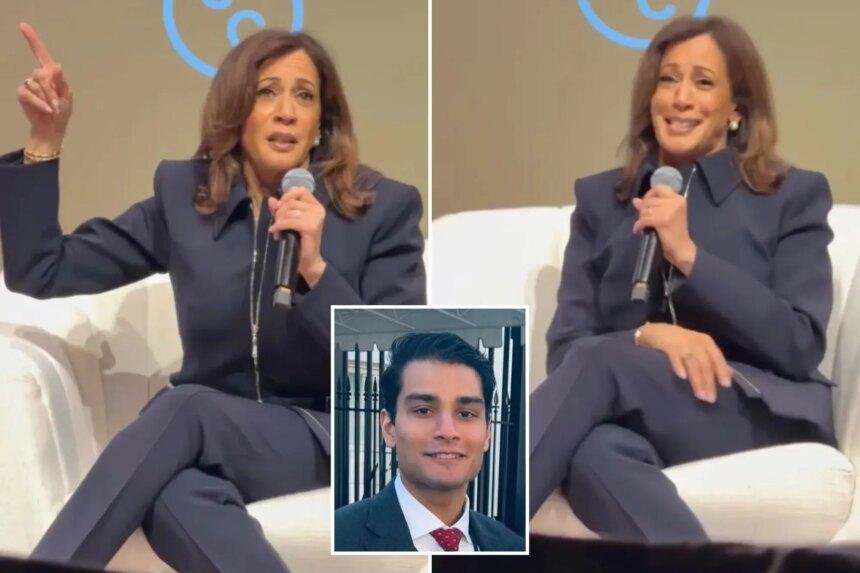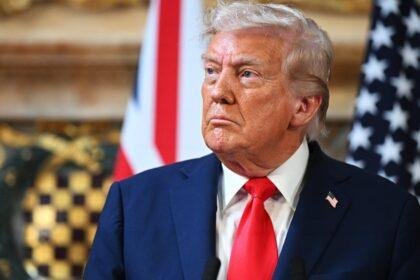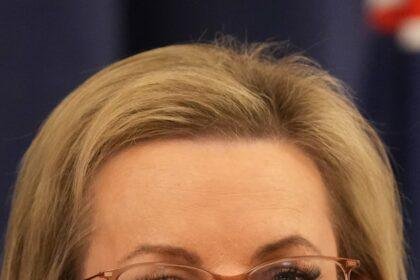White House Responds to Kamala Harris‘s Controversial Remarks During Book Tour
In a recent public appearance, former Vice President Kamala Harris stirred controversy by labeling members of the Trump administration as “motherf-ers” and “crazy.” This outburst occurred during her book tour at the “A Day of Unreasonable Conversation” summit in Los Angeles, where she addressed the current political climate and the challenges facing the nation. The White House quickly responded, reigniting discussions about Harris’s public persona and her trademark laughter.
Harris’s Remarks and Their Context
During her speech, Harris expressed frustration with the political landscape, stating, “There is so much about this moment that is trying to make people feel like they’ve lost their minds, when in fact, these motherf-ers are crazy.” The audience, largely supportive of her views, erupted in applause, indicating a shared sentiment among attendees regarding the current administration’s policies and actions.
Harris’s comments reflect a broader trend in American politics, where public figures often resort to strong language to convey their discontent. This approach, while polarizing, resonates with many who feel disillusioned by the political status quo. The former vice president’s remarks come at a time when political discourse is increasingly characterized by emotional appeals and confrontational rhetoric.
White House’s Response
In a pointed retort, White House spokesperson Kush Desai remarked, “Kamala Harris should listen to an audio recording of her cackle of a laugh before calling anyone crazy.” This statement not only critiques Harris’s choice of words but also revives longstanding discussions about her laughter, which has been a focal point of both admiration and ridicule throughout her political career.
Harris’s laughter, often described as infectious, has been a double-edged sword. While it has endeared her to some, critics have questioned its authenticity, suggesting it may serve as a deflection mechanism during tense moments. This dynamic was particularly evident during her presidential campaign, where she frequently employed her laugh to counter attacks from opponents, including former President Donald Trump.
The Role of Humor in Politics
The use of humor in politics is not new. Historical figures like Winston Churchill and Ronald Reagan effectively utilized wit to connect with the public and diffuse tension. However, the effectiveness of humor can vary significantly based on context and delivery. In Harris’s case, her laughter has often been scrutinized, leading to debates about its appropriateness in serious political discussions.
Former second gentleman Doug Emhoff has publicly defended Harris’s laughter, recalling how it played a role in their relationship. At the 2024 Democratic National Convention, he reminisced about their early conversations, emphasizing the warmth and joy her laughter brings. This personal anecdote highlights the complexity of Harris’s public image, where her laughter can be both a source of connection and a point of contention.
Harris’s Book and Its Implications
Harris is currently promoting her memoir, “107 Days,” which chronicles her experiences during her unsuccessful presidential campaign. The book aims to provide insight into her political journey and the lessons learned along the way. In her recent speeches, she has emphasized the importance of accountability among those in power, stating, “Part of this moment requires us to also debunk some of this stuff they’re trying to sell the American people.”
This call for accountability resonates with many Americans who feel that their leaders have failed to address pressing issues such as healthcare, climate change, and social justice. Harris’s remarks reflect a growing demand for transparency and responsibility in governance, particularly in light of the challenges posed by the COVID-19 pandemic and economic instability.
The Political Landscape Ahead
As the political landscape continues to evolve, Harris’s comments and the subsequent White House response underscore the heightened tensions between the Democratic and Republican parties. The upcoming elections will likely see an intensification of such rhetoric, as candidates seek to galvanize their bases and appeal to undecided voters.
The interplay between humor and serious political discourse will remain a critical aspect of this dynamic. As seen in Harris’s case, the ability to balance levity with gravitas can significantly impact public perception. The challenge for politicians will be to navigate this delicate balance while remaining authentic to their values and beliefs.
Conclusion
Kamala Harris’s recent remarks during her book tour have reignited discussions about her public persona and the role of humor in politics. The White House’s response highlights the ongoing tensions between the current administration and its critics, particularly as the nation approaches a pivotal election cycle. As political discourse becomes increasingly charged, the ability to engage in meaningful conversations while maintaining authenticity will be crucial for leaders seeking to connect with the American public. Harris’s journey, both as a politician and as a public figure, continues to unfold, offering insights into the complexities of modern governance and the challenges that lie ahead.











